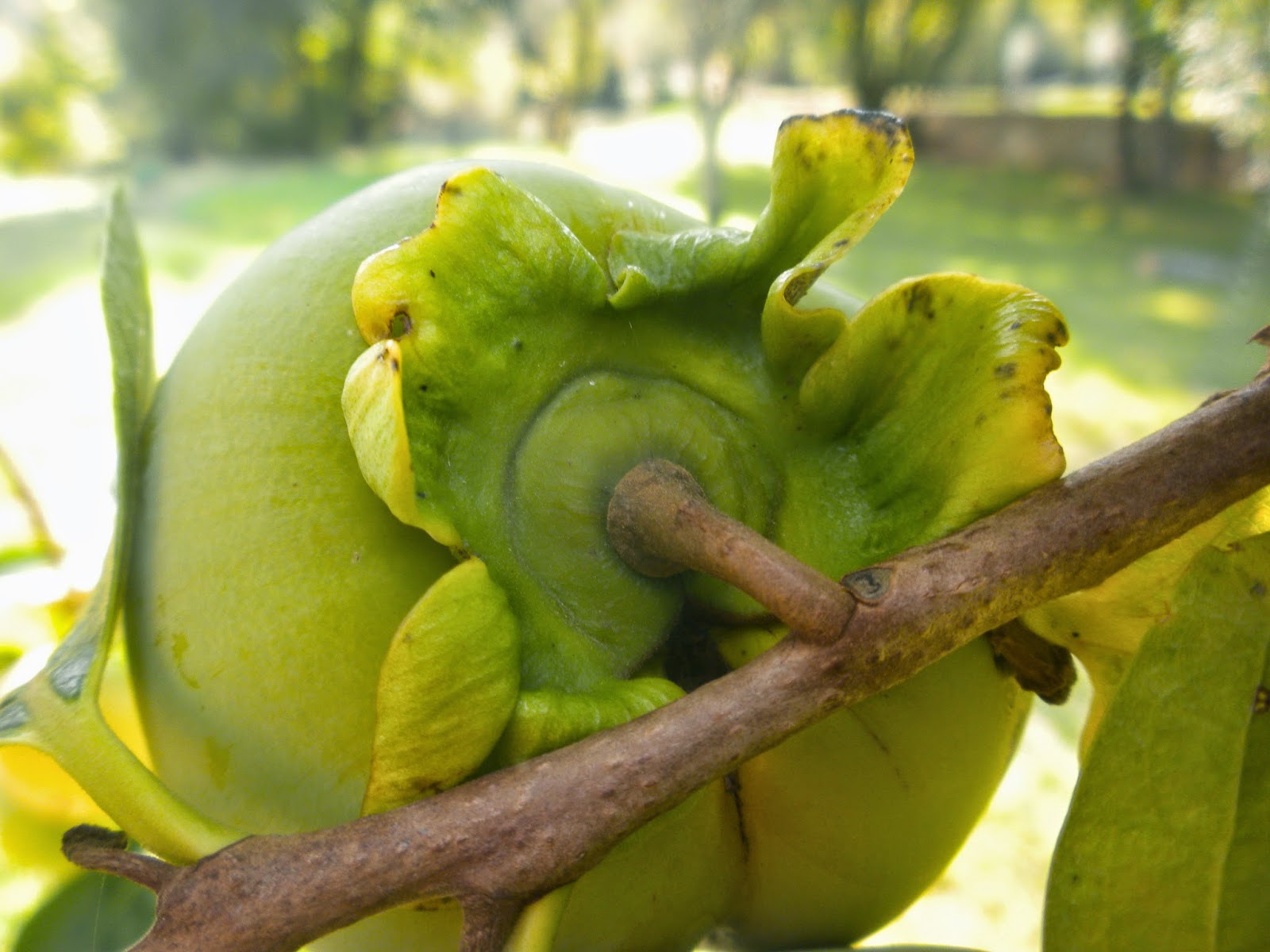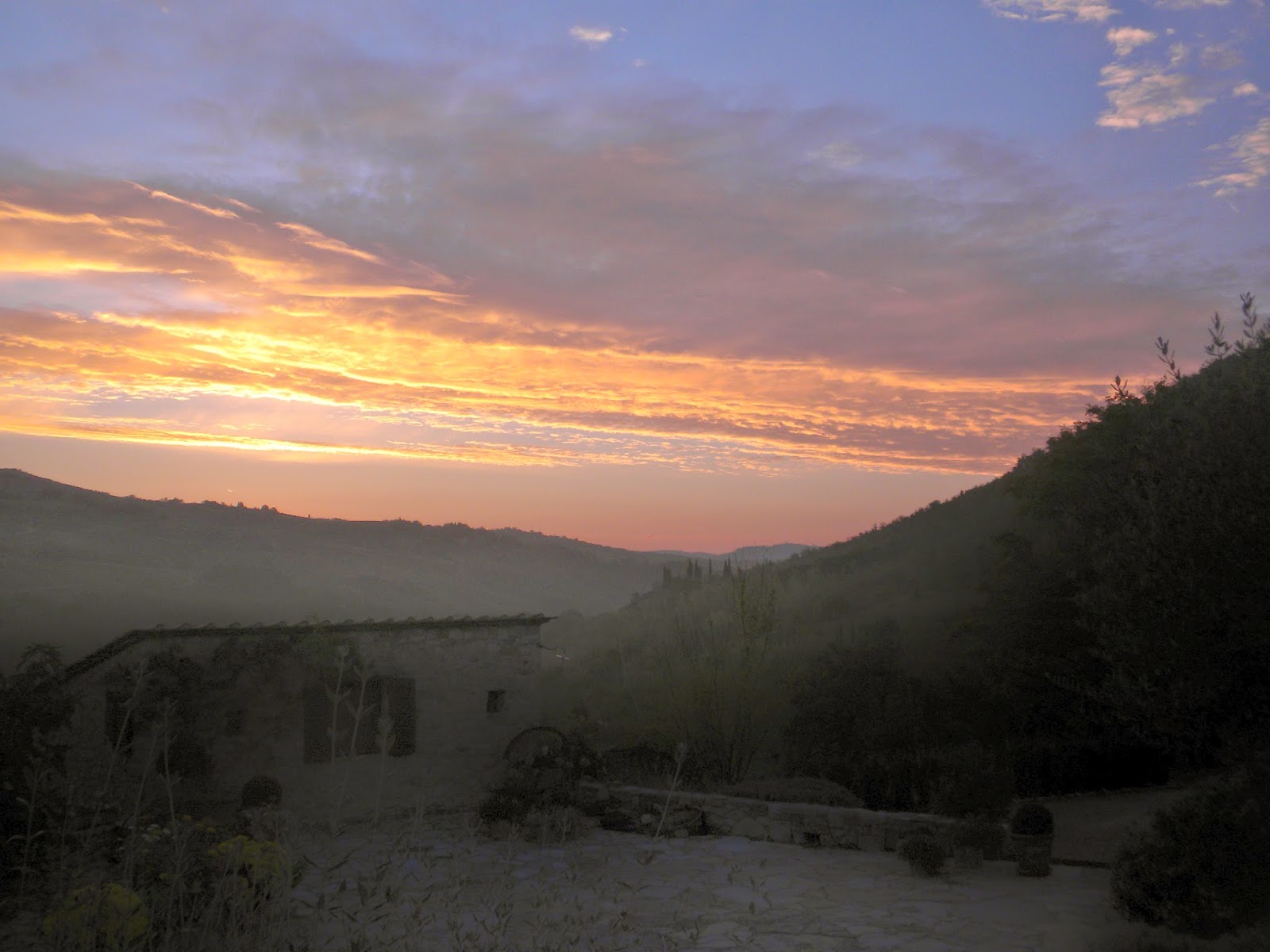Ripeness is All
Of the genus diospyros, family Ebenaceae - which is the family of the ebony tree - the most widely consumed is the Asian persimmon Diospyros kaki. Diospyros comes from Greek, meaning divine fruit or literally, 'wheat of Zeus' otherwise translated as 'Jove's fire' or 'God's pear'. In modern Greek it is called lotos and associated with the food of the lotus-eaters in the Odyssey, although there are multiple candidates for this honour. Interestingly, it has several names in Italian: loto in the south, diosporo in central Italy, cachi or kaki in the north.
The pretty word 'persimmon' comes from Native American Algonquian pessamin, strangely meaning dry fruit. I wonder if this refers to the persimmon's astringency when under-ripe, which leaves the mouth chalky-dry, thanks to the fruit's high levels of tannins. To custom-ripen or 'blet' in the home, store the persimmons in a pot with some apples, pears or bananas which exude the ethylene needed for ripening. Alternatively, persimmons can be ripened through freezing.













